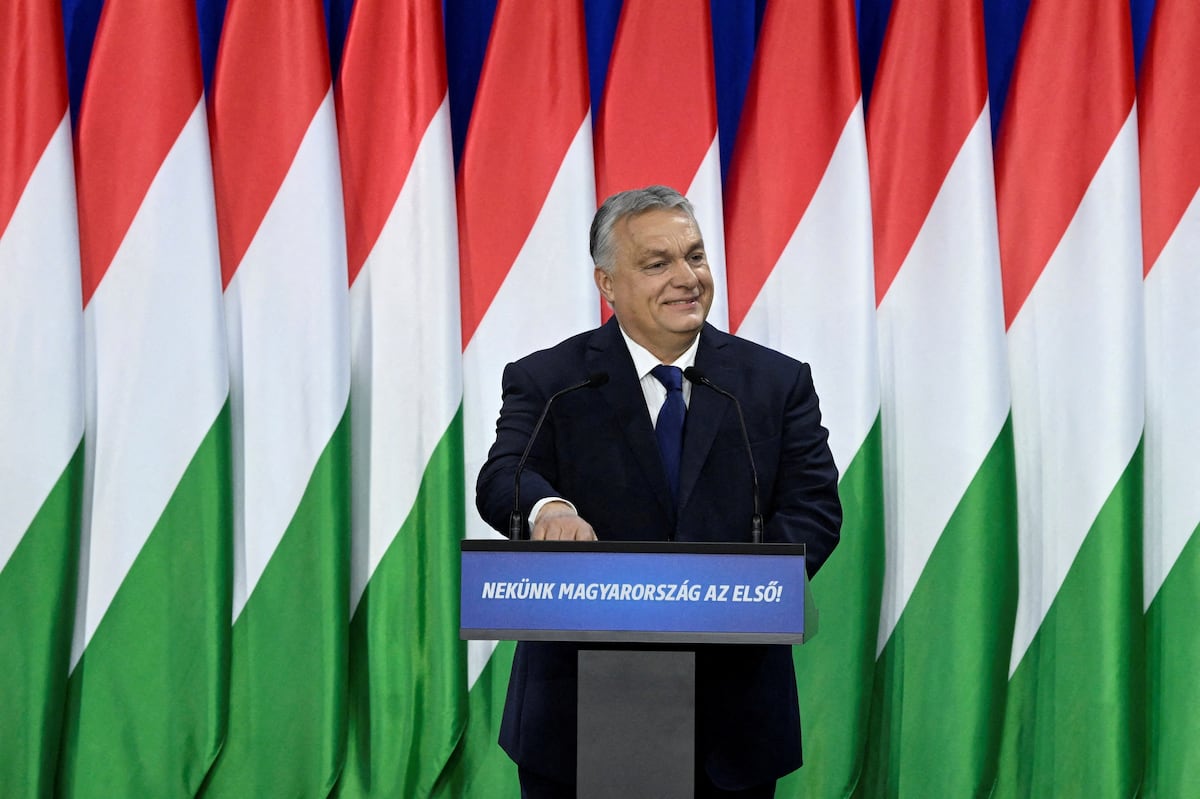Viktor Orbán promised several times that Hungary would not delay Sweden's entry into NATO and, therefore, that it would not be the last to ratify the decision made by the allies at the Madrid summit in June 2022, which also included Finland ( already a member of the Alliance).
The ultra-conservative prime minister, whose credibility among allies is seriously compromised, broke his word.
Turkey ratified the Nordic country's accession on January 23 and since then, Hungary has continued to delay the process.
Finally, Orbán announced last Saturday that the vote in Parliament would take place at the beginning of the spring sessions of the Chamber and this Tuesday the parliamentary group of Fidesz, his party, has set a date: it will be next Monday, February 26.
Since the Madrid meeting almost two years ago, Orbán has played with the ambiguity and lack of definition around the accession of the Nordic countries.
When, after the first weeks of the large-scale Russian invasion of Ukraine, virtually all allies opened the doors of NATO to Sweden and Finland, the Hungarian government stated that it was very aware of “Turkey's point of view.”
At that time, he did not express any reluctance of his own to join the Nordic military alliance, which was taking a radical turn in its security and defense policy due to fear of the Russian threat after the invasion of Ukraine.
The Government of Recep Tayyip Erdogan conditioned its approval on Sweden and Finland meeting several conditions: the tightening of the legislation of these countries regarding public demonstrations of support for the Kurdish armed group PKK (considered terrorist by Ankara and the EU) in its territory, greater ease in the extradition of individuals wanted by the Turkish authorities and the lifting of arms embargoes on Turkey for its interventions in Syria.
Ankara lifted the veto on Helsinki in March 2023 and Hungary followed that same month.
In January of this year, it resolved its disagreements with Stockholm and ratified its entry.
Of the 31 partners of the Alliance, only Budapest remained pending, well known in the EU for using the veto and breaking unanimity as a negotiating lever, especially in everything related to aid to Ukraine and sanctions against Russia, its ally.
The Orbán Government only began to give reasons of its own to delay the process in 2023, such as Sweden's criticism of Hungary's democratic decline.
However, the Hungarian Executive vaguely promised several times that ratification would occur soon.
At the same time, he found reasons to delay the vote or to disassociate himself from it, alleging, for example, that the deputies of Fidesz, the party chaired by the prime minister and which has a supermajority in Parliament, are autonomous in their decisions.
After the Turkish ratification, Orbán set a new condition: that the Swedish Prime Minister, Ulf Kristersson, travel to Hungary, just as he had visited Turkey, to “negotiate.”
The Swedish Foreign Minister, Tobias Billström, responded that there was nothing to negotiate and that the Hungarians had at no time made concrete demands.
This Tuesday, Kristersson announced that he will visit Budapest on Friday.
“We plan to discuss how to strengthen cooperation in defense and security policy,” Orbán said on the social network X, formerly Twitter.
The patience of the Allies with Hungary was reaching its limit.
On February 5, Fidesz boycotted a new attempt by the opposition to settle the matter in Parliament.
This past Sunday, no member of the Hungarian Executive agreed to meet with a delegation of American Republican and Democratic congressmen, the highest level to visit the country in years, as the US ambassador in Budapest, David Pressman, lamented.
“The allies have been waiting for 21 months for Hungary to act on Sweden's accession to NATO,” the diplomat, who has been involved in several clashes with the Orbán Government, stated in X.
This Monday, Polish Prime Minister Donald Tusk considered Hungarian behavior “unacceptable.”
As Hungary irritated its NATO partners, it strengthened ties with China, which offered security support during a visit to Budapest last week by Public Security Minister Wang Xiaohong.
Orbán announced the unblocking of Sweden's accession last Saturday during an annual speech to his followers, in the midst of one of the biggest scandals he has faced since coming to power in 2010. The unrest that a pardon from the now former president Katalin Novák to a person convicted of covering up a pedophile has generated some of the largest protests against the ultra-conservative Executive in recent years, especially the one called by
influencers
and celebrities last Friday.
The case led to the resignation of the president.
Follow all the international information on
and
X
, or in
our weekly newsletter
.
Subscribe to continue reading
Read without limits
Keep reading
I am already a subscriber
_

